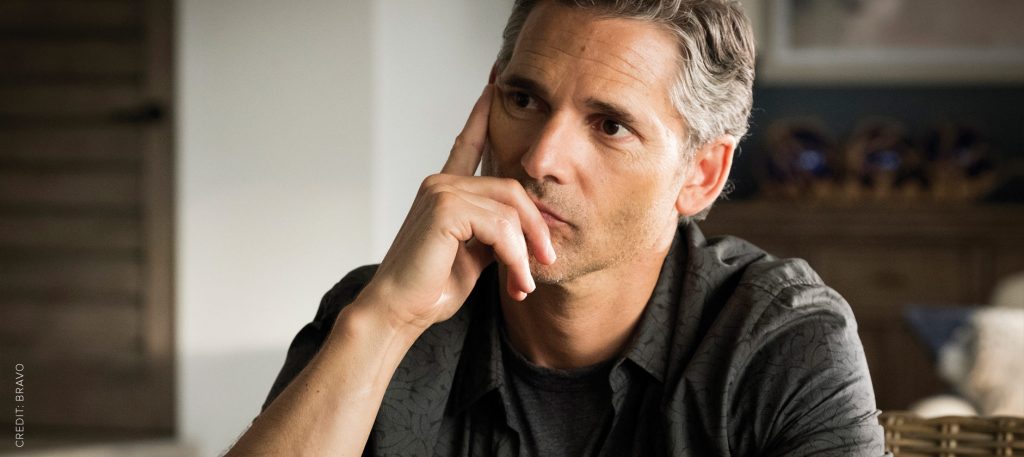Is The True Crime Phenomenon An Unhealthy Obsession?
Serial. Making a Murderer. The Ted Bundy Tapes. There’s no doubt about it: True Crime is big business.
Every week there seems to be some new crime podcast or Netflix show that’s got us hooked. So, what’s driving us to consume all this crime content, and what might it be doing to us?
It’s nothing new
While there has certainly been an explosion in true crime content in the last three to five years, our fascination with the macabre is actually nothing new, with records of popular newspapers and pamphlets detailing acts of crime as early as the sixteenth century.1
It seems us humans are hard-wired to want to know the gory details.
So just what is it that draws us to this sometimes dark and distressing content?
It might be an attempt to understand it, Doctor of Psychology Paul Wood says. “People are trying to understand their world. Curiosity is a fundamental part of what it means to be human. There is this inherent drive to understand and explore our world.” Murder is something many of us struggle to understand, so by watching a crime unfold in great detail, we might gain more insight into the perpetrator’s motivation or behaviour.
And of course, it’s exciting. True crime content is unique in that it allows us to be simultaneously victim, perpetrator and juror. We get to feel the fear of the victim, the motivation of the offender and the challenge of being the detective. From the safety of our lounge room, we get a sense of what it might be like to be involved in a crime without actually having to experience it, Paul says.
“There is a bit of an addictive element to controlled fear – a bit like the adrenalin rush of going on theme park rides. You get a bit of that feeling of anxiety and fear without having to experience the real thing.”
Women seem to be particularly drawn to true crime content, as it gives us the opportunity to rehearse how we might respond if we were ever in that situation. By gaining insight into how a criminal’s mind works, we feel that are in some way protecting or preparing ourselves for what we might do if we ever found encountered one.
“Research shows that women are more likely to be drawn to true crime content for its value of “What would I do in this situation?” Paul explains, “…Watching this stuff gives us insight into the motives behind these things – it can be really useful from an evolutionary perspective. I think there’s probably a little bit of schadenfreude too – like ‘thank goodness that’s not me. Whatever challenges or difficulties I might be going through in my life, at least I am not experiencing that’.”
As you’d expect, there’s possibly also a darker side.
In a literature review, Rachel Tinker linked our interest in true crime to the father of psychology Carl Jung.2 Jung often referred to the concept of a shadow, or “dark side” that all humans possess which is home to our primitive emotions and impulses. By consuming true crime content, we are forced to confront this morbid side of ourselves rather than repressing it as we do normally.
Paul reckons there might be something in this: “There’s an evolutionary component to it – as humans we might feel temptation. Most people have had dark thoughts, but we generally don’t act on those. Our brain is wired that way. We are drawn to questions around decision making and risk taking.”
And of course there’s no denying that there’s just a lot more of it out there, Psychologist Sara Chetwin says. “I just think people are more aware of what’s going on and there’s been quite a lot of major events recently… people are maybe just trying to understand it. What we can’t discount is that there is a lot more of this content so people are going to watch it.”
How is all this crime affecting us?
Even if you’re the biggest true crime fan, it’s likely you’ve been a bit shaken up after a really violent episode. Constantly seeing and hearing about horrific things that have happened to real people can’t help but rub off.
The risk is that consuming large amounts of true crime content might make us overstate the level of crime in society and start to shrink our lives accordingly, Paul says.
“Because we are exposed to so much more of this kind of content, it can give us a false sense of the scale of it. This presents the risk that we might live our lives with more fear than we need to.”
This particularly affects how we parent our kids. “There’s research that shows that parents’ confidence has decreased massively in the last three decades but that hasn’t corresponded with a proportionate increase in crime. We live a more fearful life and we make decisions so that we live our lives less fully.” Paul explains.
On the flip side, over exposure to this stuff might desensitise us to the level of emotion and empathy that is expected in response to a violent crime or murder. This is a particularly big risk for younger audiences, Sara says “We’ve got all the research that says that when children and teenagers watch this stuff excessively, there is the risk that they can become desensitized to it and that may lead to an increase in violent behaviour. There is research that says that watching nasty things can lead people to do nasty things.”
Could watching more crime make us more violent?
If you’ve ever watched something really dark and wondered if it might rub off on you, you probably don’t need to worry. Because for most of us, it’s unlikely, Sara says. “It’s not like there are many people out there like Ted Bundy, or who want to be like Ted Bundy. Someone with an interest in the macabre may be vulnerable from watching certain things. But for a normal, sentient adult, they can decide what they choose to consume based on their tastes.”
One study showed that people respond differently to violent content depending on their state of mind. The study, published in PLOS One showed that viewers who were more aggressive tended to be less upset or affected by violent movies than non-aggressive viewers. 3
Should there be censorship?
As true crime becomes more and more prevalent, it does beg the question on whether there should be censorship or guidelines on who can consume it. For most people, it’s probably safe to make their own judgements, but if you’re a parent, you should definitely watch what your kids are consuming, Sara says.
“As adults we have different levels of what we can consume – you know your own parameters. But if you are a parent of kids between 0 and 16 – you need to have a handle on what they are viewing. There is strong research that indicates that long term high consumption of this kind of material can desensitize kids to violence and may lead to violent behaviour. This research has been around for a long time. There are links to aggression and criminality from prolonged viewing of this kind of content. This is not new. It is up to the individual and up to parents to monitor their own and their kids’ consumption.”
Paul agrees “Certainly there should be age restrictions, no question. Children watching this stuff may live in greater fear than they need to. There needs to be an attempt not to expose ourselves to content that could desensitise us to emotions like fear, empathy or horror.”

A happy medium
So how much is too much? If you’re generally happy and the true crime content isn’t affecting you, then indulge as you like, Sara says. But maybe balance it out with something a little more upbeat.
“Moderation in all things. If you are overloading yourself with really violent stuff, none of us really know what the impacts of that might be.
I suggest that in your diet of content, you don’t overload on violent things. Balance it out with rom coms, comedy, other docos. We need to have options, we need to have similar content that isn’t necessarily violent.”
Time for Love Actually then. Just pass me the remote.
Sara Chetwin
Sara is a registered psychologist with 25 years experience who works individuals, families, businesses and sports people. Sara has developed her skills as a motivator, life skills manager, stress buster, mind coach and mentor. Sara can also assist with family and child counselling, sports psychology, media commentary, image consultancy and more.
Sara regularly contributes to television, radio and print media including The Project, The Café, The Breakfast Show, The AM Show and the NZ Herald. Sara also runs sports seminars for sports people and often travels to Australia and to the USA to consult with private clients.
Dr Paul Wood
Dr Paul Wood is a doctor of psychology, motivational speakers, leadership and development specialist, media personality, husband and father. His area of expertise is in helping people pursue their potential while developing the mental toughness and resilience necessary to flourish through adversity. At 18 Paul was in Prison and his life was completely off the rails. Paul uses his journey from delinquent to doctor to illustrate the process of transformational changes and how we can strive to be the best version of ourselves. Paul has been a contributor to the Huffington Post and other media outlets. He has recently released his first book, How to Escape from Prison.
